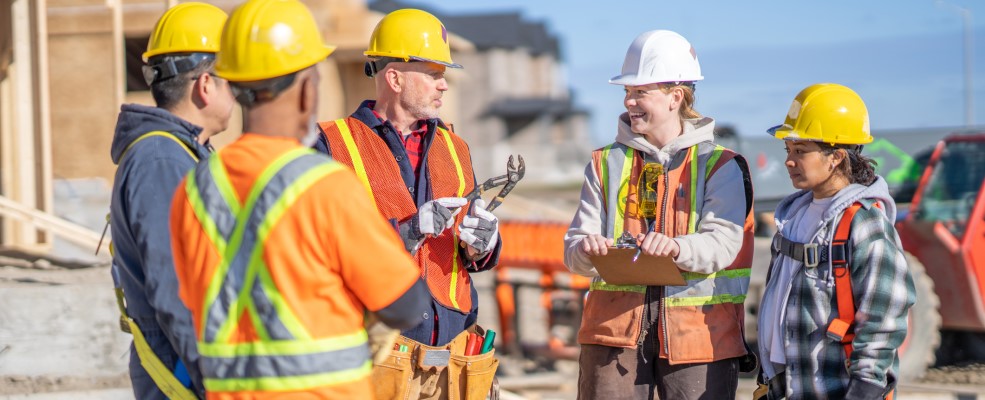The construction industry in Wales delivers more than just buildings and infrastructure; it also provides training and employment opportunities for people facing barriers to achieving their full potential. I am Jemma, a researcher based at WISERD at Cardiff University, and my research examines how the construction industry in Wales creates social value.
In 2023, Wales introduced the Social Partnership and Public Procurement (Wales) Act. This provides a legal framework to ensure that public spending creates tangible benefits for Welsh people. It’s not just about buying goods and services; it’s about supporting fair work, fostering social partnerships, and ensuring that public money enhances the well-being of current and future generations.
Traditional procurement is just about getting the best deal for your money. Social procurement, on the other hand, incorporates additional social benefits. Sometimes it’s direct, such as buying from not-for-profits or businesses owned by individuals from underrepresented groups. Sometimes it’s indirect, such as adding requirements for hiring and training people who struggle to find work, or setting targets for apprenticeships among underrepresented groups or people who face barriers to employment. This research is particularly interested in exploring indirect approaches: how can construction projects create genuine pathways to employment, education, and training for people in Wales who face barriers.
There’s a surprising lack of research on what works when it comes to turning the promise of social value into reality. With the new Welsh law in place, this project is asking: How do you ensure that opportunities in construction translate into fair work for people who need it? Interviews with policymakers, construction firms, and civil society groups are underway to determine which strategies make a genuine difference.
I have worked as a practitioner creating social value as well as a researcher, and two of the projects that I worked on in Wales show what is possible:
The Clean Slate Cymru project focused on individuals with convictions, bringing together organisations from the construction sector, the criminal justice system, not-for-profit organisations, and education. Over two years, we launched 11 pilot initiatives—some within prisons, some in the community—helping people develop skills, find employment, and build networks to support lasting employment. Employers in the construction industry were positive about giving people with convictions a chance, especially given the ongoing skills shortages.
The Symud Ymlaen / Moving Forward (SYMF) project tackled youth homelessness by creating training and work placements for young people who’ve been in care or who were known to the justice system. With three different pathways—tailored to each person’s work readiness—they helped young people build both practical and life skills. Research on the project showed that the project was effective in supporting young people progress into construction employment and apprenticeships and reduce the risk of them experiencing youth homelessness.
The research doesn’t stop at Wales. It’s designed to produce practical resources for the construction industry and civil society, resources that clearly show what works when it comes to building social value and promoting fair work. Through academic publications, the insights gained here will reach an international audience, highlighting how thoughtful social procurement policies can support people who face barriers to employment in different contexts.
At its heart, this project isn’t just about bricks and mortar. It’s about using public investment to improve lives, starting in Wales, and potentially going much further. This blog post is part of an ongoing series for the Building Social Value and Fair Work in the Construction Industry in Wales project at Cardiff University.
To continue sharing grounded, practice-based insights, we’re seeking more examples that demonstrate how public procurement can drive fair work, social value, and meaningful change.
If you’re involved in a project that’s making a difference—or know one that should be highlighted—I’d love to hear from you. Please get in touch via email at BridgemanJ1@cardiff.ac.uk to share your story, make a connection, or explore potential collaboration opportunities.

